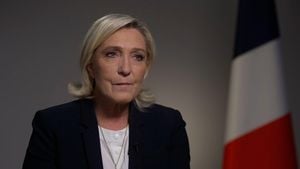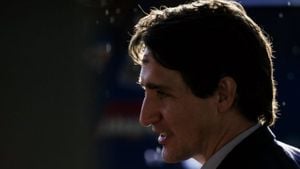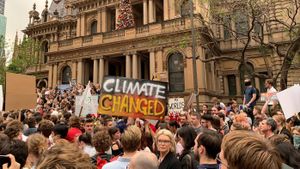On December 1, 2024, the European Commission is set to inaugurate its new team under the leadership of President Ursula von der Leyen, marking the beginning of her second term after extensive negotiations within the European Parliament. The path to this milestone has not been smooth, as it involved contentious debates and strategic alliances among the Parliament's major political groups, including the centre-right European People’s Party (EPP), centre-left Socialists and Democrats (S&D), and centrist Renew Europe.
After weeks of stalled discussions, the deal was clinched on November 20, 2024, allowing von der Leyen’s 26-member commission to take form, reflective of shifting political dynamics within the EU. Noteworthy is the inclusion of six executive vice-presidents from diverse political backgrounds and countries, tasked with managing various sectors, including climate, competition, and industrial policies.
The negotiations, leading up to the agreement, highlighted the delicate balance of power as lawmakers grappled with the nomination of key figures, particularly the controversial appointment of Raffaele Fitto, affiliated with the far-right Italian Brothers of Italy party. This contentious decision sparked controversy among the Socialists, who perceived it as capitulating to extremist politics. Despite initial opposition, the S&D found themselves acquiescing to Fitto’s confirmation, simultaneously affirming the much-coveted position of Spain’s Teresa Ribera as the de facto second-in-command of the Commission, responsible for competition and climate initiatives.
Political analysts argue this shift suggests the EU’s rightward tilt following the June elections, where conservative parties gained ground. Manfred Weber, leader of the EPP, stated, “Everybody can have a strong say for the future of Europe,” emphasizing the importance of representation across parliamentary factions. The new arrangement has reignited debate about the EPP's flirtation with far-right politics, which historically has been viewed sceptically by left-leaning constituents.
The extensive negotiations also encompassed the fate of Olivér Várhelyi from Hungary, previously deemed problematic due to his close ties to Viktor Orbán’s controversial government. While Várhelyi retained his position, his responsibilities were significantly curtailed—now focusing solely on health and animal welfare, ostensibly to alleviate concerns over his handling of LGBTQ rights and reproductive health.
Beyond the internal political disputes, the stakes were significantly raised against the backdrop of pressing external challenges facing the EU—from the conflict in Ukraine and uptick of geopolitical tension to the looming economic threats from countries like China and the anticipated return of former U.S. President Donald Trump.
Concerns about the role of traditional checks and balances were also brought to light as no commissioner nominee had faced rejection or needed additional hearings, signifying what some may interpret as a departure from the Parliament’s usual role as the guardian of democratic principles within the EU framework. Critics have expressed alarm over this perceived loss of influence, highlighting the potential danger of reduced scrutiny on the Commission’s initiatives.
With the new Commission officially commencing on December 1, EU leaders must also contend with the fragmented political climate within the Parliament, as evidenced by the mixed reactions concerning Fitto's appointment.
The agreement reached among Parliament leadership encapsulated key points such as advocating for the rule of law, displaying unwavering support for Ukraine, and maintaining pro-European values. Yet, the real test lies within the upcoming confirmation vote where members from different factions will determine whether unity can prevail over discord.
The political maneuvers and negotiations leading up to von der Leyen’s new term reflect underlying tensions and the complexity of political alliances within the European Union, setting the stage for transformative leadership as it navigates uncertain geopolitical landscapes.



